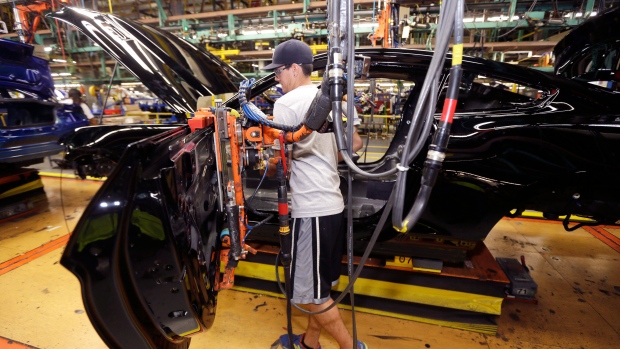New technologies may lead to millions of job losses in Canada and governments here are not as prepared for change as they are in other countries, says a public policy analyst. Canada has already lost many jobs to automation in the manufacturing sector. For example, the auto sector in the province of Ontario produces as many vehicles as it did 15 years ago with 30 per cent fewer workers.

“There will be more churn in the job market, more people bouncing between different jobs,” says Sunil Johal.
On the cusp of dramatic change
“In many other sectors we are just at the cusp of seeing what will happen when we think about new technologies like artificial intelligence and how they could dramatically reshape sectors across the board,” says Sunil Johal, policy director at the independent think tank, the Mowat Centre at the University of Toronto.
Among the sectors that could be affected, he lists law, medicine, financial services. Less likely to be affected are services that involve human contact like nursing or social work, or services that are not routine such as architecture, plumbing or electrical. Science, technology, engineering and math skills will likely serve employees well, although Johal acknowledges it is difficult to predict what employment will look like in the future.

New technology means that there is the same number of vehicles made in Ontario as 15 years ago but with 30 per cent fewer employees. (Carlos Osorio/Associated Press)
As much as 45 per cent of jobs will be lost
There are several studies which predict job losses ranging from five per cent to 45 per cent. “I think the reality we need to become accustomed to is that no matter what happens is that there will be more churn in the job market, more people bouncing between different jobs. In all likelihood we’re going to see many jobs destroyed or eliminated and many new jobs created,” says Johal.
Social support needed, says analyst
“The question is, how do we manage those transitions for people so that they can maintain a foothold in meaningful employment for as much of their career as possible.”
Johal says governments need to provide social support in the form of such things as pensions, reasonable housing and child care to people who lose their jobs and it must retrain them.

Already, about one third of workers in Ontario province do precarious work, says Sunil Johal.
Workers already ‘falling through the cracks’
“Generally speaking, the Canadian governments, both federally and provincially, spend far less on what we call active labour market policies or skills retraining than most other advanced economise. And the private sector in Canada doesn’t fare much better. The private sector is spending far less than they used to 25, 30 years ago in terms of retraining their own workers…
“The danger of falling behind in this is we have workers and individuals who fall through the cracks,” says Johal. “We’re already seeing that in Canada today…If you look at the figures in a province like Ontario, roughly a third of workers are engaged in what we call precarious forms of employment.”
That is they do not have permanent, full-time jobs and may work on a freelance basis for low wages. Johal says that is bad for people and bad for economic growth, and can lead to negative outcomes like growing populism and Brexit.







For reasons beyond our control, and for an undetermined period of time, our comment section is now closed. However, our social networks remain open to your contributions.